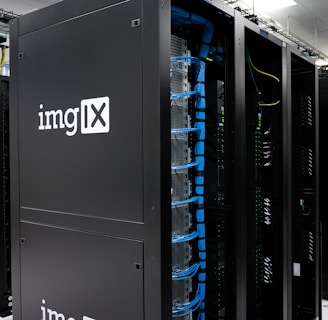Storage Problems
CAUSES OF SLOW COMPUTER PERFORMANCE
11/30/20242 min read


Storage Problems
1. Full Storage Drive
Cause: When a storage drive is nearly full, the system may struggle to create and manage temporary files or pagefiles (virtual memory). This limitation slows down performance across the board.
Symptoms:
Delayed response when saving or loading files.
System lag, especially in resource-intensive applications.
Error messages about low disk space.
Solution:
Clear Unnecessary Files:
Use built-in tools like Disk Cleanup (Windows) or Storage Management (Mac) to delete temporary files.
Remove unused applications, old backups, or large, unneeded files.
Enable Storage Sense (Windows):
Automatically manage disk space by deleting old temporary files and emptying the recycle bin.
Move Files:
Transfer large files like videos, photos, or backups to external drives or cloud storage.
Upgrade Storage:
Install a larger storage drive or add a secondary drive to your system.
2. Hard Drive Issues
Cause: Traditional HDDs (Hard Disk Drives) are slower at accessing and writing data compared to SSDs (Solid-State Drives). Mechanical drives can also develop bad sectors over time, further reducing performance.
Symptoms:
Slow file transfer speeds or long boot times.
Clicking noises from the drive (a sign of physical failure).
Frequent freezes or system crashes when accessing certain files.
Solution:
Upgrade to SSD:
SSDs are much faster and more reliable than HDDs. Replacing your primary drive with an SSD will significantly improve performance.
Check Drive Health:
Use tools like chkdsk (Windows) or Disk Utility (Mac) to identify and repair errors on the drive.
Third-party tools such as CrystalDiskInfo can provide detailed health reports.
Defragment the Drive (HDDs Only):
Fragmentation scatters file data, slowing access times. Use a disk defragmenter to optimize file storage (do not defragment SSDs).
Backup and Replace:
If the drive has bad sectors or physical damage, back up your data immediately and replace the drive to avoid data loss.
Additional Tips
Monitor Storage Usage:
Regularly check how much space is available and what’s consuming it.
Optimize Virtual Memory:
Adjust the size of your system’s pagefile if necessary. Too small a pagefile on a full drive can exacerbate performance issues.
Regular Maintenance:
Run maintenance tools and keep your storage clean to avoid performance degradation over time.
Addressing storage issues can lead to noticeable performance improvements, especially when upgrading from an HDD to an SSD.
Connect With Us
Join our vibrant community and unlock a world of opportunities to enhance your experience. By becoming a member, you gain access to a network of like-minded individuals who share your passions and interests. Engage in discussions, participate in exciting events, and collaborate on projects that inspire and motivate you. Our community is dedicated to fostering growth, support, and creativity, ensuring that every member feels valued and empowered. Whether you're looking to learn new skills, expand your knowledge, or simply connect with others, there’s something for everyone. Don’t miss out on the chance to enrich your journey—join us today and take your experience to the next level!
Support
Resources
ralphcoutard@gmail.com
(774) 381-1623
Computer Performance was founded and designed by Ralph Coutard. All content, including text, graphics, logos, images, and course materials, published on this website is the property of Computer Performance and is protected by international copyright laws. Unauthorized reproduction, distribution, or use of any content without express written permission is prohibited. You may download or print portions of the website for personal, non-commercial use, provided that all copyright and other proprietary notices are retained. Any other use, including copying, modifying, or creating derivative works, requires prior consent from Computer Performance. For permissions and inquiries, please contact us at: ralphcoutard@gmail.com
Company
@@@ © @@@
